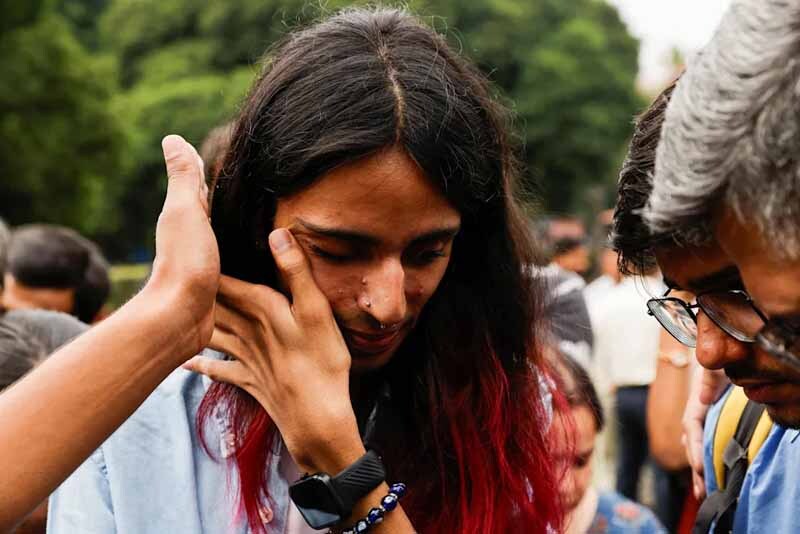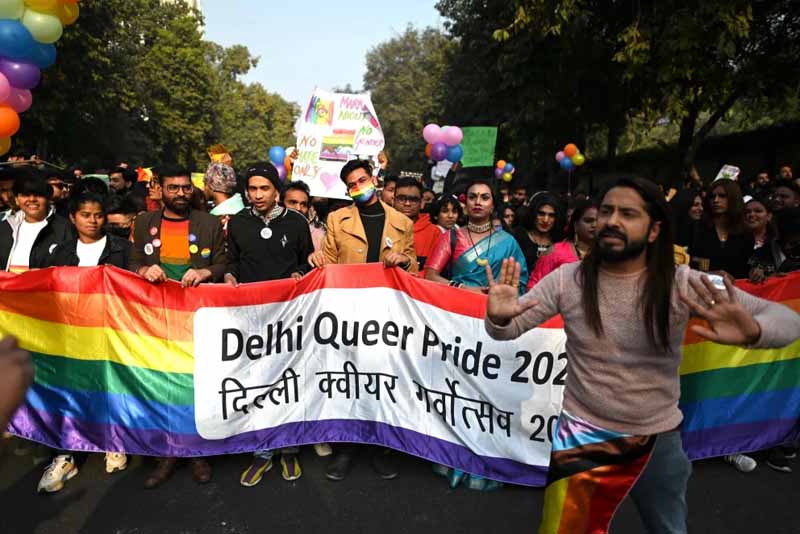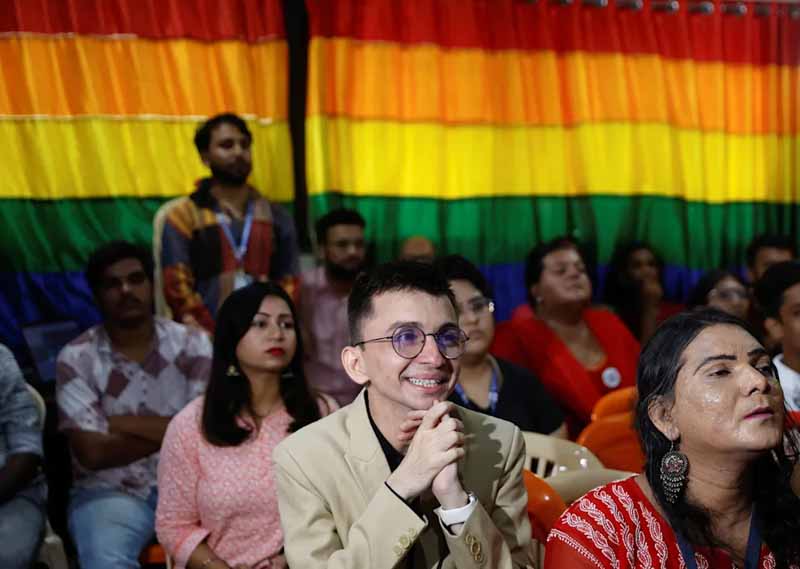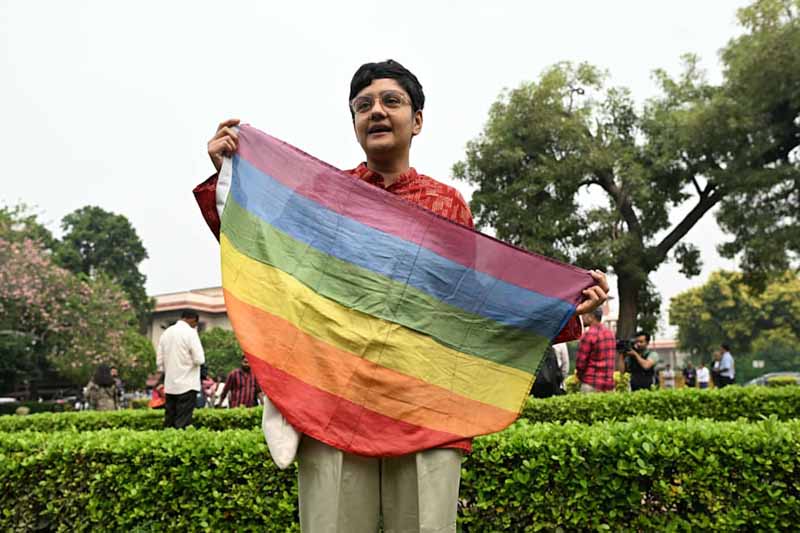 News Staff
News Staff![]() -
October 17, 2023 -
Society -
LGBTQ
India
No Gay Marriage
-
3.1K views -
0 Comments -
0 Likes -
0 Reviews
-
October 17, 2023 -
Society -
LGBTQ
India
No Gay Marriage
-
3.1K views -
0 Comments -
0 Likes -
0 Reviews

You can see the disappointment on her face: An LGBT activist can no longer hold back her tears after the verdict.
DLNews Society:
Shock ruling in India: The Supreme Court has rejected legalizing gay marriage!
The judges emphasized that marriage for all was not their responsibility but that of Parliament. In doing so, they are joining the conservative line of the Hindu nationalist BJP party. Despite this decision, the judges emphasized that LGBTQ people must be protected from legal discrimination.
LGBTQ: The abbreviation LGBTQ stands for lesbian, gay, bisexual, trans, and queer people. People who do not identify with the traditional role models of men and women or other norms surrounding gender and sexuality describe themselves as queer.

In January, members and supporters of the LGBTQ community protested during the Queer Pride Parade from Barakhamba Raod to Jantar Mantar in Delhi, demanding that same-sex couples marry in the country.
Second-class citizens”
The five judges - four men and one woman - heard 21 applications to open the marriage in April and May.
The couples tried to achieve legal regulation in patriarchal India - with 1.4 billion inhabitants, the most populous country in the world. The applicants argued that banning same-sex marriage would reduce LGBTQ people to “second-class citizens.”

They hoped until the end: members of the LGBTQ community followed the trial on TV.
Marriage is important to them because it includes essential rights such as joint bank accounts, inheritance, or adoption. The hope was that gay marriage, which only exists in a few non-Western countries, would lead to greater societal acceptance.
Recognition, yes – but not necessarily as marriage
However, the court pointed out that the government must create ways to recognize same-sex relationships legally - but not necessarily as marriage.
“The right to recognition of a relationship must not be restricted based on sexual orientation,” said Chief Judge Dhananjaya Y. Chandrachud. In addition, the judges emphasized that the government must promote acceptance of queer people through education and protection projects.

With rainbow flags, many people waited eagerly before the court for the verdict.
The LGBTQ community, which once had great hope, is disappointed by the verdict. “What should we do if there is no political will?” asked Sharif Rangnekar, a gay man waiting outside the court before the judgment. “We are not important voters.”
The LGBTQ community is fighting against stigmatization in Indian society. Many families do not accept that their children belong to the LGBTQ community and make it clear. The government emphasized that in Indian culture, marriages should only be between a man and a woman. Religious leaders – Hindus, Muslims, and Christians – also oppose gay marriage.
Homosexuality has been legal again since 2018
In 2018, the Supreme Court had already ruled in favor of the LGBTQ community and overturned a regulation from the British colonial era that banned even consensual sex between homosexuals. Last year, the court ruled that “unmarried couples or queer relationships” were also entitled to social benefits that heterosexual spouses or families are entitled to.
A majority of Indians are now in favor of equal treatment of gays and lesbians in marriage law. According to an international study published in June, 53 percent of the population is open to this. It remains to be seen how politicians will react to the ruling and how the Indian LGBTQ community and their supporters will continue to fight for equal rights in the country.
INDIA'S SUPREME COURT REJECTS GAY MARRIAGE
By News Staff![]() 0
0
0
696
4
0
0
0
696
4
4 photos

Desert Local News is an invitation-only, members-based publication built on fact-checked, non-biased journalism.
All articles are publicly visible and free to read, but participation is reserved for members—comments and discussion require an invitation to join.
We cover local, state, and world news with clarity and context, free from political agendas, outrage, or misinformation.